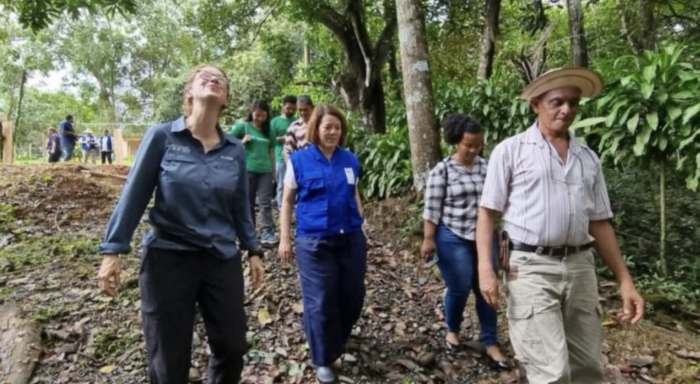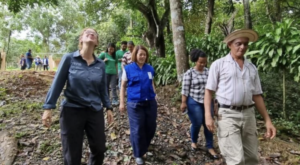The United Nations Development Program (UNDP) launched the documentary project “Sustainable Development Chronicles, water harvesting process in Panama.”
The Chronicles of Sustainable Development is an initiative that documents stories of people or associations that work in water harvesting protections and that encourages communities to get involved in these projects carried out by the Ministry of the Environment (MiAmbiente) and UNDP, through the Small Donations Program (PPD) and the Sustainable Blue Initiative in communities.
The launch of the documentary was carried out in the community of Bayano de supply an initial production nursery of 25,000 improved coffee seedlings, fruit trees and native trees for the Association of Coffee Producers of the Province of Los Santos, according to a UNDP statement.
MiAmbiente has installed six water harvesting systems (3 in Coclé, 1 in East Panama and 2 in West Panama) with an investment of $48,824.97 that benefit 1737 people. 20 systems are currently being tendered for the Ngäbe Buglé region and three in the province of Veraguas.
Aleida Ferreyra, Deputy Resident Representative of UNDP Panama, explained that the issue of harvesting water is a practice that helps achieve the Sustainable Development Goals and that it has had good results in the countries where they have been implemented. There is great potential to improve the availability and seasonal regulation of water for its social, productive and environmental use.
Harvesting water is one of the solutions to address the problem of water scarcity in the territories and allows us to efficiently exploit rainwater,” he said.
Karina Lince, director of Water Security at MiAmbiente, expressed her satisfaction with the release of the chronicle documentary and considered that the harvest of rainwater is an alternative that contributes to reducing pressure on water sources and is aligned with the Sustainable Development Goals and the Hive Plan, promoted by the Ministry of Education, with which the government seeks to remove the 300 poorest districts in the country from multidimensional

